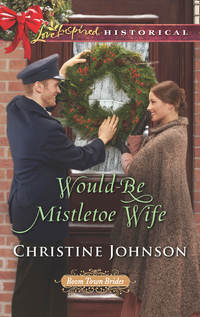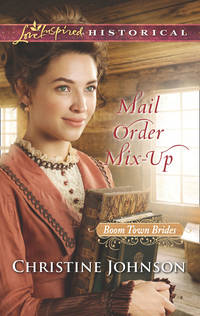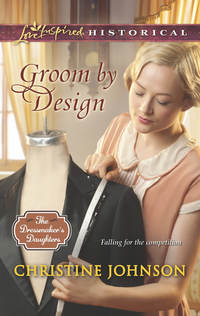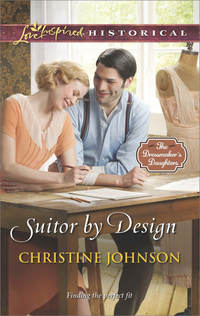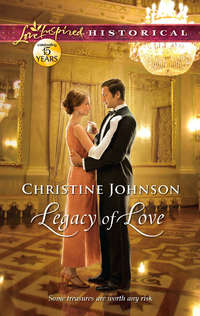
Полная версия
Soaring Home
“Want a ride, Darcy?” asked the kid, pocketing the money.
She shook her head. “Brought my lunch.”
Simmons hesitated. Clearly, he didn’t want to leave Darcy alone with Jack, nor should he.
“I’m locking the barn.” Jack put on his cap. “I’m afraid you can’t stay, Miss Shea.”
Jack’s words spurred Simmons on his way, but Darcy took her time gathering her lunch basket. “I’m going to eat under the big oak. I brought roast beef sandwiches. There’s enough to share.”
“Share?” Jack wasn’t so sure that was wise.
“What’s wrong? You don’t eat beef? Or is it the company you find objectionable?”
“Not at all.” He searched for an excuse. “I wanted something hot.”
“I can set your sandwich in the sun.”
He had to double-check, but sure enough, Darcy Shea was teasing. It had been a long time since a woman had teased him, and it felt good. “That won’t be necessary.”
“Then you’ll join me?”
“After an invitation like that, how could I refuse?”
She unpacked the basket beneath the big oak: sandwiches wrapped in paper and a mason jar filled with a pale yellow liquid that had to be lemonade. His mouth watered. He hadn’t sipped a lemonade in years.
“What else do you have in that basket of yours?” He made sure he stood a good ten feet away.
“Dill pickles, boiled eggs and blackberry pie, but you’ll have a hard time eating them from there.” She plopped to the ground and pointed to the grassy expanse in front of her. “Plenty of room to sit.”
He dropped to the grass and bounded right back up. The ground was littered with thousands of acorns. “I don’t suppose you remembered a blanket and wine.”
“It’s lunch, not a picnic. Besides, Michigan happens to be dry, Mrs. Lawrence’s notwithstanding.”
“I know that,” he said, though he found the tone a bit too temperance for his liking. Jack didn’t drink alcohol for personal reasons, not due to some self-righteous cause. He brushed the acorns away so he could sit with reasonable comfort.
“How do you know Michigan’s dry? You’re from New York.”
A wet state doesn’t need blind pigs, Jack wanted to say, but that was a conversation Jack did not care to have, so he turned its direction. “I live and work on Long Island, but I grew up in Buffalo.”
She gave him a peculiar look. “Buffalo? You’re from Buffalo? How odd. Everyone seems to be from there these days.”
“Who is ‘everyone’?”
She shrugged. “No one important.”
After an awkward silence during which the ants made progress toward the lunch basket and Darcy fussed with her napkin, Jack ventured, “Did you make the pie?”
“What if I say I did?”
“It’s not a competition. I don’t care who baked the pie. I’m just making conversation.”
“Oh.” A lovely, dusky blush rose in her cheeks. It was nice to know Miss Darcy Shea could be embarrassed. “I thought, well…never mind.”
He stretched out on the grass, leaning on one elbow, and tipped his cap back so he could watch her every move. If she’d give up that defensive shield she put around herself, she’d be downright attractive.
She unscrewed the lid on the mason jar. “We’ll have to share, unless you still have coffee.”
“Tough luck. It ran out a half hour ago.”
“I suppose I have enough for two.” She set the jar between them and took a bite of her sandwich. She even looked attractive chewing.
He checked the sandwich. Beef and mustard. Homemade bread, with its rich, yeasty aroma. It had been ages since he’d eaten anything other than bakery bread.
“What happens when your mechanic arrives?” she asked while he was chewing. “Will he have the replacement parts? Does he know what to bring? What did you tell him when you talked on the telephone?”
Jack choked down the food. “Is this an interview?”
This time no blush, just an enigmatic twist of the mouth. “I’m just curious.”
Jack ripped his gaze away. “He’ll bring everything he can. But if he doesn’t have a replacement part, we’ll have to wire the factory.”
It looked as if she perked up, but maybe it was his imagination.
“Where is the factory?”
He poured some lemonade into his coffee cup. “Do you have a cup? I’ll pour.”
“Oh, yes.” She dug around in the basket and came up with a glass.
While he poured, she repeated her question. “So where is the factory?”
“The main plant is in Buffalo, but all the prototypes come out of Long Island, under the direct supervision of G.H. himself.”
“G.H.?”
“Curtiss. Don’t tell me you’ve never heard of G.H. Curtiss.”
“Of course I have,” she said rather quickly, and for a second he thought she was lying, but she followed with a litany of facts that would impress anyone. “Flew the Rheims Racer to the Gordon Bennett trophy at Rheims. Winner of The Scientific American Cup and the New York World prize for flying between Albany and New York in less than a day. Maker of the JN biplanes.”
“All right, all right. I don’t need a history lesson.”
“So he designed this plane?”
“At least in part.” He sampled the lemonade. Tart but refreshing.
“I’m guessing it’s designed for distance flight.”
What was she getting at? “The plane’s ultimate use is not my concern.”
“You just fly them, right?”
“That’s right.” But there was something about the brightness of her eyes that got to him, that made him say things he shouldn’t. “This flight was a special test.”
“For distance.” She leaned forward. “It had to be. How far can it go on one fueling?”
He shrugged and picked up a hard-boiled egg. “Farther than here.”
She laughed at his joke, but he could see her calculating. “To Chicago and back is a long way. Hundreds of miles in each direction. How many miles can a gallon of fuel go? Not that many. Oh, my. That’s a lot of fuel. The military must be spending a fortune on this.”
He rolled the egg between his hands. “I wouldn’t know.”
“Do they know you’re here?” she asked breathlessly. Her lips parted, moist from the lemonade. She couldn’t possibly know what that did to him.
He blinked, trying to remember what she’d asked. Oh—if his bosses knew he’d been forced to land here. “The proper people know.”
“Do you think Mr. Curtiss is anxious?”
She was assuming he had a greater knowledge of Curtiss than he did. He’d met the boss a few times. It wasn’t as if they were friends.
“Maybe a little,” he said with a wink, glad to see she followed with a smile, “but I can handle it.”
She leaned toward him, and a curl drifted across her brow. He resisted the urge to brush it aside.
“You mean your mechanic can handle it,” she said.
He laughed. “Touché.”
For a moment she stilled, deep in thought, and he wondered if he’d somehow offended her. Then, slow as a propeller starting to turn, her eyes widened. He wanted to believe that glow in her face was for him, but he’d only be kidding himself. She had hit on something, something important.
“I want to do it, what you do,” she breathed, rising to her knees and sweeping her arms to the open sky. “I want to fly. Ever since the Chicago air meet, I knew that one day, no matter what it took, I would fly.”
He could have looked at her all day, but he had to open his mouth. “But you didn’t.”
She lowered her gaze to meet his, jaw set with determination. “I will.”
Jack began peeling the egg. He knew what she meant, that he could be the one to fulfill her dream. This was the danger point. Rushing in was easy. Getting out wasn’t. Especially with a banker father lurking in the background.
“There are good flight schools around the country,” he said carefully. “Chicago would be closest.”
She sat back on her heels, deflated. “They’re closed. The war.”
“They’ll reopen after the war.”
“I don’t want to wait. Who knows how long the war will last. You’re an instructor. You could teach me.”
The desperation in her voice made him want to help, but he couldn’t. “I teach recruits.”
“I know. But what’s one more person? They’ll hardly know I’m there. I’m not meant to be here, in this small town. I want to do something, set a record, go places no woman has ever gone. Someday I will be the first to fly over the North Pole.”
Jack gagged on the lemonade. “Excuse me?” Her intensity was thrilling, but he had to set her straight. This wasn’t a little jaunt she was talking about. “Do you have any idea how much funding and preparation it takes to make a flight like that? Plus there’s no money in it. Now, be the first to make the transatlantic flight in one hop, and you’ll get yourself fifty thousand dollars. That’s a prize worth going for.”
She didn’t blink. She didn’t breathe. “That’s what you want to do, isn’t it?”
He ran his thumb around the rim of his cup. “It’s not possible.”
“Not now, with the war, but later, after it’s over, you can do it. You can be the first.”
She was so close he could see tiny drops of perspiration on her upper lip.
He cleared his throat. “Others have the jump on me, and the planes aren’t capable of that distance yet.” Though true, his excuse did nothing to break the charge between them, so he joked, “I can’t even make New York to Chicago without engine failure.”
If she thought it funny, she didn’t laugh. She didn’t move an inch. He was uncomfortably aware of the smells of violet and petroleum, not to mention the heat she generated.
“That’s a test flight with a new plane,” she said, seemingly oblivious to the electric moment. “Take an aeroplane you’ve tested and run for hours, one you know inside and out, and you can do it.”
“First I need to get this plane running again.” He cleared his throat, but it was too late. She’d noticed its rough edge.
“Let me fly with you when it’s fixed,” she said, looking at the open field. “I want to know. I need to know what it’s like to fly, even if it’s just for a minute.”
This was what he knew had been coming, but the faraway gaze, reddened cheeks and desperate hope undid him. Memories rushed back. He and his little sister, twenty years ago, playing in the sunlight. The river rushing past. Sissy laughing. Come along, Jackie. Are you afraid? He’d gone with her to the riverbed and look what happened.
He shook his head, banishing the past.
Miss Shea looked at him with the same eager eyes and tense anticipation. Such desire could not be crushed by one refusal. If he didn’t give her that plane ride, she would find another plane and another pilot, likely less scrupulous and willing to risk her life for money or a cheap thrill. Jack wouldn’t see the disaster, but it would be his fault all the same. But if he gave her a ride, he would be in control. He could scare her just a little and rid her of these romantic notions once and for all.
“Promise you’ll tell no one?” He would regret this.
She brightened. “I do, I do! Oh, thank you.” She clapped her hands together, her cheeks flushed with excitement.
His boss would kill him if he knew what he was doing. “That means no newspaper stories. No magazine stories. No stories at all. Promise?”
She nodded. “Absolutely.”
“It also depends on the weather,” he cautioned.
“I know.”
“And it has to be early in the morning, at first light. I want you here at four o’clock, the morning after the plane is repaired. Wind, rain or storms, and the flight is called off.”
“I understand. I’ll be there.” She impulsively squeezed his hand. “Thank you.”
“Thank me later.” After he’d scared her enough that she’d never fly again.
Two days later, Darcy stomped her feet in the cool morning air, while Burrows tinkered with the aeroplane’s motor. They’d rolled the plane out of the barn well before dawn, but the engine wouldn’t stay running. By now the horizon had lightened to pale gray rimmed with gold. Jack said they had to fly at first light. If this took much longer, the flight wouldn’t happen.
She glanced toward town. No one coming yet, but the longer this took, the better the chance she’d be spotted. Soon Mum would rap on her bedroom door to wake her. When she didn’t show for breakfast, they’d know.
She nipped her lower lip.
“Be patient,” said Jack, hands buried in the pockets of his jacket. “You don’t want to fly unless everything’s perfect. Haste leads to crashes.”
“That and weather.” Darcy hoped she sounded informed. The Chicago newspapers had blamed the 1911 aviation meet fatalities on high winds. “Today is dead calm.”
“Perfect weather, if it warms up.”
She tucked her hands into the folds of her skirt, wishing she had thought to wear gloves, and watched Jack work. He looked so assured talking to Burrows. This was his element. He belonged in the air.
Excitement tugged at her. If only they’d go.
Jack walked over to her. “You cold?”
She balled her hands and shook her head.
He fetched her a scarf from the cockpit. “It gets colder the higher you fly. Wrap this around your neck and tuck it in. Don’t let the ends come loose or you’ll be flying that plane alone.”
“What?”
“This girl has dual controls,” he explained, “and if your scarf gets tangled in the controls, you’ll find yourself with one hard to handle lady.”
“That won’t happen,” she said, tucking the ends into her coat and trying not to be nervous. “I promise.”
His lips snaked into that lopsided grin.
“What’s wrong?” she asked. “Is there an end loose? Do I look foolish?”
“Not at all.” But his gaze lingered a little too long.
“Something’s not right.”
He shook his head. “You’ll have a time of it climbing into the cockpit with that skirt. Tuck it tight around your legs once you’re settled or it’ll blow into your face and my field of vision. You should have worn the outfit you had on yesterday.”
Darcy inched up her skirt a little. His eyes widened as she revealed overalls.
“Harriet Quimby had a flying suit that could convert from bloomers to a skirt,” she said. “I thought such an arrangement might prove practical today, given the circumstances.”
He whistled, long and low and with obvious appreciation. “Miss Shea, you surprise me sometimes.”
“Darcy,” she insisted. “If I’m going to put my life in your hands, you should call me Darcy.”
The warm notes of his laughter resonated deep within her. “Is that all you think of my ability to pilot this plane? Well Darcy, let me tell you a little secret. I have never wrecked an aeroplane, and I don’t intend to start today.”
The little flutter inside her roared into full-blown excitement. He wasn’t just any aviator. He was the best, the absolute best—and he was taking her up in his plane.
Burrows hopped down and indicated the plane was ready to go. At last. Hunter confirmed a few last-minute details while Darcy gathered her skirt and climbed aboard. From atop the lower wing, she could see clear to town. No one coming.
“Forward cockpit,” Jack said.
“I know.” Once in the cockpit, she stretched her legs past the rudder bar and eyed the wheel. Good heavens, she could actually fly the plane from here. She placed her hands on the wheel and closed her eyes, imagining for a moment what it would be like to be in control.
“Ready?”
Darcy’s eyes popped open, and she hastily secured her seat belt. She pulled the motor hood over her hair. Jack passed her a pair of goggles, and their hands touched. That same spark. She jerked away and fumbled with the eye gear.
“Remember, we won’t be able to talk in flight,” he said while she retrieved the goggles, “so a thumb down means you want to land.”
Darcy nodded.
Jack shouted to Burrows, and the mechanic gave the propeller a tug. With a whir and a roar, the motor gained speed. The plane began moving forward, slowly at first, then bumping more and more rapidly across the field. The Baker house and barn vanished behind them, and the village approached. She could see Terchie’s and the roof of the bank. Papa.
A wave of regret washed over her. She hadn’t exactly told him what she was doing. He’d only forbid it. But still, it was wrong. Forgive me, she prayed.
The end of the field loomed closer and closer. She gripped the edge of the cockpit. If they didn’t get in the air soon, they’d clip the trees. She could end up like so many aviators: dead or severely injured.
“Watch out,” she yelled, though there was no way Jack could have heard her. She wished they could stop now, wished she’d gotten her father’s approval, but it was too late. Soon she’d be smashed to bits.
They hurtled toward the trees. Then, when it seemed certain they’d crash, the bumping stopped and the plane rose.
Darcy screamed. The icy air blasted her face and made her shiver, but as soon as she looked below, she forgot how cold she was. Trees and houses shrank below her until they looked like toys.
Jack banked to the right, toward town. Pearlman looked so small, so insignificant from above. There stood her house, the kitchen window lit. Maybe her parents would hear the noise and look out, never suspecting their daughter was flying overhead.
She was flying! In the air, above the earth, like the eagle. God had not created her to fly, but she’d done it. She had done it on her own—well, with the help of Jack Hunter—and it was every bit as wonderful as she’d imagined.
From this height she could see how rivers and roads and railways connected the scattered houses one to the other in a great web. This was how God had made the world. How He watched over it. She leaned back, letting the air flow past her face, and gazed straight into the heavens.
This was where she belonged. In the sky. Here, above the busy-ness of the world, she would make her place, and it would truly matter. She’d show the world that women deserved to be treated equally. Same wages, same voting privileges, equal stakes in marriage. She would change the world.
Then the engine coughed. It almost died before racing madly. The plane accelerated.
Darcy looked back.
Jack was frantically working on something in the cockpit. He wasn’t watching where they were going. He wasn’t even steering.
She grabbed the wheel and tried to hold it in place.
Then the engine died.
It grew deathly quiet, with only the whistle of wind rushing past.
The wheel yanked in her hands. She held on tighter.
“Let go,” Jack yelled.
She released it like a hot stove iron. The village, once so far away, was coming nearer and nearer in great swooping circles. They’d stalled and gone into a spin. Spins were fatal.
“Do something!” she yelled.
“I am.”
But the buildings and trees kept coming closer. They were going to crash.
“Brace yourself,” he yelled.
She bent low. An exposed head could be snapped off if the plane tumbled end to end.
In the eerie silence she heard Jack moving around behind her. Why wasn’t he bracing himself for impact?
Then, as she offered a fervent prayer for undeserved forgiveness, the engine sprang to life. The plane shot upward, leaving her stomach on the ground.
Her scream trailed across the dark-edged sky. Were they really going to live? She looked back. Jack stared at the controls. She checked below. Yes, the ground was where it belonged. She gulped in the sweet air, but she couldn’t stop shaking.
Jack circled, lined up the field and brought the plane down. It bumped and hopped over the uneven earth, bouncing her brain against her skull. But after the plane came to a halt and the propeller turned slower and slower until it stopped, a fierce ache took hold.
She’d flown, had faced the worst that could be endured and had lived.
She swallowed as Jack tapped her on the shoulder.
“Sorry about that. Little problem with the engine. You all right?” He’d already taken off his helmet and goggles, and his sandy hair gleamed gold in the rising sun.
She nodded and pulled off her goggles and hood. The flight might be over, but her dream was not. It had only begun. This experience only confirmed that God had destined her to fly.
She climbed out the far side of the cockpit and pulled down her skirt. By the time she rounded the plane, half the town was streaming toward them.
“Thank you.” She threw her arms around Jack. “It was wonderful.”
“Stop that.” He extricated himself. “Remember, you never got into the plane. You had nothing to do with that flight.”
“I know, I know.” She shoved the motor hood into her pocket, but she couldn’t so easily wash away her disappointment. “I was just congratulating you on an excellent flight.”
Jack glanced from Burrows, who was climbing down from the wing, to the gathering crowd, clearly worried.
“Just a kink in the fuel line,” said Burrows. “I’ll check it over, fill her with gasoline and oil, and we can be on our way.”
“I’ll get the oil.” Jack sprinted to the barn.
Leaving? Right now? How could he fly off, after what had just happened? Jack Hunter held the key to her dream. He could teach her to fly. He couldn’t leave. She started after him.
“Miss Shea?” The wiry mechanic caught her arm. “A word of warning. Jack Hunter is not the marrying type.”
She pulled away. “Who said anything about marriage?”
“I just thought…” he let his voice trail off as Jack reappeared with an oilcan.
Burrows was wrong. Despite Jack’s admittedly attractive qualities, she had no intention of marrying. She had to fly first. Her interest in Jack Hunter was strictly professional.
She caught Jack’s arm. The leather was cold and dead, but the man beneath it was not. “Take me with you.”
He stared, a mixture of shock and wariness that sent her spirits tumbling.
“I’ll earn my way,” she said, words spinning out faster and faster. “I’ll work. I won’t be a financial burden. I have to fly. I will do anything to fly. Anything. Please?”
Jack looked disgusted, and for a second she saw herself through his eyes—a pathetic, pleading woman so consumed with her dream that she’d throw away propriety.
“Darcy?” Papa’s gruff voice shivered down her spine. He’d heard. He’d heard everything. She looked for Jack, but he was climbing into the cockpit. Burrows pulled the propeller. No! The cry wailed deep inside, but she dared not let it out, not when she stood face-to-face with judgment.
Excuse after excuse whirled through her mind in time with the propeller’s revolutions. The din spared her from answering her father immediately, but once the plane sped down the field and arced into the air, sun glinting gold off its wings, the reprieve ended.
“What was that about?” he asked.
She fought the horrible deflation. “It doesn’t matter anymore.” She swallowed, but the pain would not diminish. “It’s over. All over.”
The aeroplane grew smaller and smaller until it vanished.
Chapter Four
All Darcy’s efforts had come to naught. Jack flew away, and she returned to dull, normal life. Papa must have sensed her despair, because he didn’t lecture. He waited until she spilled the whole story. When the tears subsided, he accepted her apology and requested she devote her free time to worthy causes like the Ladies’ Aid Society and the war effort. No social functions except Beattie’s picnic. Even that came to a dismal end, when pouring rain sent everyone scurrying.
The tedium turned days to weeks. Summer slid into autumn. Though her dream felt as dead as the maple leaves tumbling to the ground, Darcy caught herself looking for Jack around every corner. She gazed for hours into the empty sky. She devoured the newspaper, hoping for word of him. She checked the post every day. Nothing.
Occasionally she’d catch a whiff of a saddle or harness and snap around, looking for the familiar leather jacket. At night she prayed for his return and gazed at the million stars, wondering if he saw the same ones she did.
“I’m so tired of this town,” she complained to Beatrice as they painted signs for the November election. “I need to do something. I need to go somewhere.”


